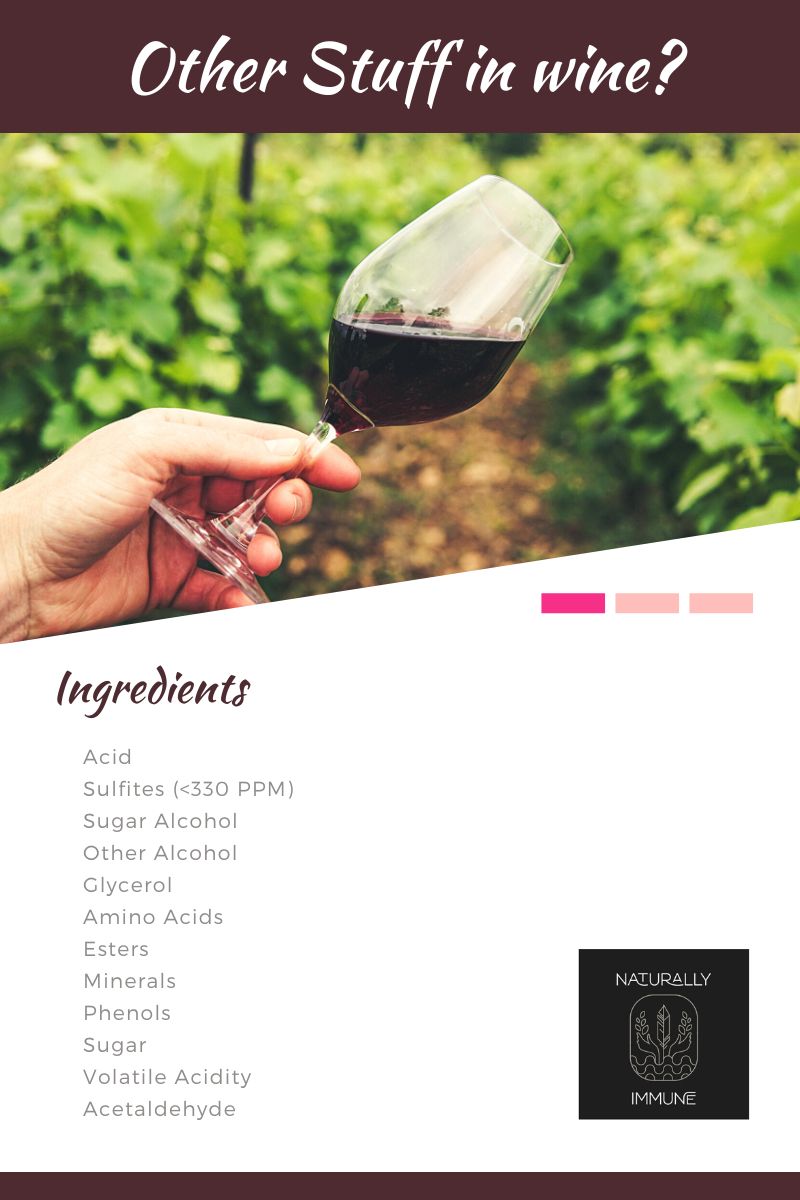
Whether or not you have a taste for wine, here’s an undeniable fact: it’s one of life’s simple pleasures. It can elevate the romantic touch of a dinner date under the stars, turn around a stressful day after a relaxing soak in the bathtub, and enliven home entertaining and any special occasion. Its origins, soil, climate, smell (nose the wine!), notes, and the way it pairs with food—all of these come together to validate wine as a truly remarkable drink.
I can go on and on about its many admirable traits, but let me stop right here. If you’ve always loved to indulge in a glass or two, and are feeling a little bit guilty about it, research shows you don’t have to be. Wine is actually good for you, and, taken moderately, can yield favorable results for your state of health.

What’s wine made of?
Like many great discoveries of this world, wine was the happy result of an accident. Six thousand years ago, Egyptian merchants stored grapes in containers that ended up fermenting—the yeasts turning the sugars into alcohol. Hence, wine was born.
Today, it is a huge business, with Italy, France, Spain and USA as some of the top wine-producing countries in the world.
So, in essence, wine is made up of grapes, water, and alcohol, the component which makes you feel light-headed and drunk. Is that all what wine contains? No, there are other stuff, non-alcoholic stuff that make up wine, and this is where the healthy compounds can be found. See the simple chart below to have a sneak peek of what’s really inside a glass of wi

Why is it healthy?
The healthful components of wine can all be traced back to the polyphenols or phenols.
Phenols, which are found in high concentrations on the grape skin, are found to beneficial to health, including preventing cellular damage and protecting the heart from diseases.
How does wine prevent cellular damage?
The phenols are antioxidants that prevent cellular damage. Our bodies are made up of a complex web of interconnected cells that suffer when we have inflammation or oxidative stress.
Inflammation: occurs when your immune system sends out cells to fight bacteria or heal an injury
Oxidative stress: condition caused by an imbalance between antioxidants and unstable molecules called free radicals, which can damage your cells.

The polyphenols are antioxidants that have been shown to reduce both oxidative stress and inflammation.
By reducing the risk for oxidative stress, wine is believed help protect the brain from Alzheimer’s disease.
How does wine protect the heart?
Researchers believe that red wine’s high concentration of polyphenols helps reduce risk for high blood pressure, high cholesterol, and metabolic diseases. The polyphenolic compounds work to relax or dilate the arteries, and at the same time, protect the lining of your heart’s blood vessels, curtailing the occurrence of blood clots.
Further, some studies show drinking red wine may reduce blood pressure in people with high blood pressure, which lead to a risk reduction for heart diseases.

Other Benefits
As if the top two benefits discussed above are not enough to validate your love for wine, here are other benefits you might have never considered (which will make you enjoy wine even more!)
Wine is great for mental health. Enough said. Drinking wine is a relaxing activity. Drank moderately and enjoyed in the presence of true friends for intimate conversations, it can help reduce stress and anxiety in your life.
Wine keeps your brain sharp. The resveratrol (a kind of polyphenol) present in red wines helps inhibit the development of beta-amyloid protein, a major component of senile plaques that cause Alzheimer’s disease.
Wine keeps you slim. Again, thanks to resveratrol, stubborn white fat can turn into burnable brown fat. There are studies that show drinking wine helps increase metabolism by 70 to 90 minutes.

How much wine should you drink?
With the list of health benefits listed above, does this mean you can chug down wine? Unfortunately not. Wine is still an alcoholic beverage, and all health practitioners recommend that all type of alcoholic drinks be taken in moderation. What does “moderately” mean?
According to the CDC (Centers for Diseases Control and Prevention), moderately means 1 drink or less per day for women, and 2 drinks or less per day for men.
What type of wine should you drink?
The short answer is, well the expensive type of course! Those that are vintage, and were stored for a long time, are the most precious type of wine (some go over the whopping price of $100,000).
But in all seriousness, the price tag doesn’t matter. All wines contain antioxidants, but if you must choose between the two major types of wine (red and white), go for red. Red wine is floating with more antioxidants. Nevertheless, if you have the nose (and the appetite) for wine, don’t ignore the whites—they pair well with creamy pastas, fish, and many more great dishes!

Conclusion
Sure, wine might not be top of mind when it comes to beverages that benefit your health. But, hey, it feels great knowing that an occasional indulgence is not only harmless; it also comes with health benefits. So the next time you grab a bottle of Pinot Noir from the spirits shelf, or take a sip of your beloved Vino, close your eyes, drink up, and enjoy the moment.
Tags



0 Comments
Trackbacks/Pingbacks